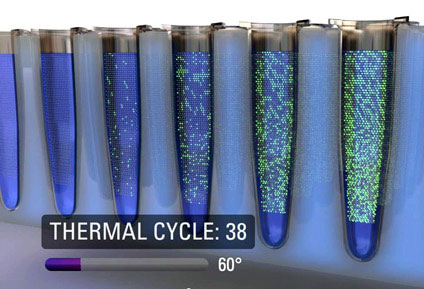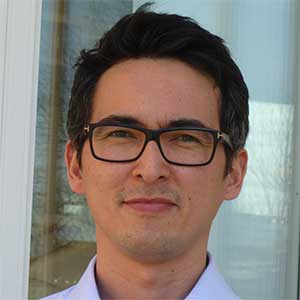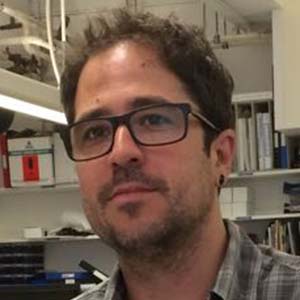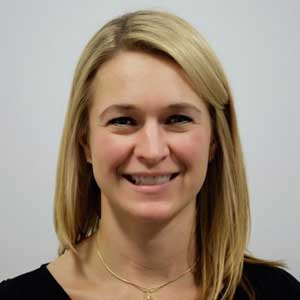Session Abstract – PMWC 2017 Silicon Valley
Session Synopsis: The richness of physiological information in cell-free DNA & RNA is being mined for early detection and treatment in cancer, transplant health, Type I diabetes and other disease states. Depending on the number of biomarkers being usefully interrogated, either broad profiling by Next Generation Sequencing or focused quantitative measurements by digital PCR may be best suited for clinical decision-making. The high sensitivity, specificity and reproducibility of droplet digital PCR technology, as well as its rapid turnaround time and affordability, have led to its explosive uptake in clinical investigations, especially for cancer. Increasingly, translational researchers and clinicians are moving back and forth between the two technology approaches at different stages of disease. Speakers in this session will illustrate how and why they have chosen the technical approach used in their studies and/or for ongoing patient care, including factors such as type and stage of cancer, urgency of the information, what is already known and what can be usefully learned about the particular patient’s disease.
Speaker Profile
M.D., Ph.D., Assistant Professor, Lund University, Sweden; CEO, SAGA Diagnostics AB
Biography
Dr. Lao Saal is Assistant Professor and Head of Translational Oncogenomics at the Division of Oncology and Pathology, Lund University. His academic research group focuses on cancer molecular profiling, PTEN/PI3K signaling, and “liquid biopsy” analyses. He is co-PI of the SCAN-B Initiative, the largest breast cancer genomics in Sweden with over 9000 patients enrolled to date (NCT02306096). In addition, as CEO of SAGA Diagnostics, Dr. Saal is applying innovative technologies for ultrasensitive quantification of circulating tumor DNA for companion diagnostics and monitoring of cancer patients. He received his MD and PhD degrees from Columbia University in New York in the laboratory of Ramon Parsons, and also trained with Jeffrey Trent, Paul Meltzer, and Javed Khan at the NHGRI/NIH, and with Yuman Fong at Memorial Sloan-Kettering Cancer Center. He has received several awards including the Swedish Cancer Society Young Investigator Award.
Talk
Tumor Heterogeneity and Circulating Tumor DNA Cancer Monitoring
Intratumoral heterogeneity complicates companion diagnostics and cancer monitoring by ctDNA liquid biopsies. The utility of measuring chromosomal rearrangements for detection of occult metastasis will be presented, as well the clinical potential of ultrasensitive and ultraspecific methods for quantification of druggable/actionable gene mutations.
Speaker Profile
Ph.D., Senior Scientific Officer, Molecular Oncology Team, Institute of Cancer Research, UK
Biography
Dr. Garcia-Murillas joined Nick Turner’s Molecular Oncology group at the ICR in 2010, initially to work on G Protein-Coupled receptors in breast cancer. Since 2010, Dr Garcia-Murillas has increasingly focused on translational research in breast cancer. He has led and developed work on the use of novel approaches, including Next Generation Sequencing (NGS) and digital PCR (dPCR) to study circulating tumour DNA (ctDNA) from “liquid biopsies”. Currently his research interests focus in the detection and tracking of structural variants, including gene amplifications and deletions, and mutations, primarily in breast cancer, but also in lung and Head and Neck cancers. To date, he continues to work on investigating how ctDNA can be best exploited as a potential biomarker for relapse and prediction of response to targeted treatment in breast cancer.
Talk
Prediction of Clinical Outcomes in Breast Cancer with ctDNA
Identification of early-stage breast cancer patients at high risk of relapse would allow tailoring of adjuvant therapy approaches. Analysis of ctDNA in plasma by NGS and ddPCR can be used to monitor for minimal residual disease and identify early breast cancer patients at high risk of relapse.
Speaker Profile
M.D., Ph.D., Molecular Genetic Pathology Fellow, Brigham and Women’s Hospital, Harvard Medical School
Biography
Dr. Lauren Ritterhouse is interested in molecular pathology and clinical genomics, specifically cancer diagnosis and prognosis. As a molecular genetic pathology fellow at Brigham and Women’s Hospital and Harvard Medical School, she was interested in the translation of emerging molecular biomarkers into the clinical laboratory, including the use of Droplet Digital PCR (ddPCR) for plasma cell-free DNA detection. Prior to the molecular genetic pathology fellowship, she was an Anatomic Pathology resident at Brigham and Women’s Hospital and obtained an MD and PhD degree in clinical immunology from the University of Oklahoma.
Talk
Plasma cfDNA Mutation Detection in EGFR-Mutated Lung Cancer
In clinical validation, plasma cfDNA ddPCR for EGFR hotspot mutations in NSCLC patients showed a specificity of 100% relative to tumor tissue genotyping with sensitivities from 72-92%. In practice, plasma cfDNA for EGFR mutation detection are resulted in a mean of 4 days from phlebotomy and can reduce the need for invasive biopsies.






